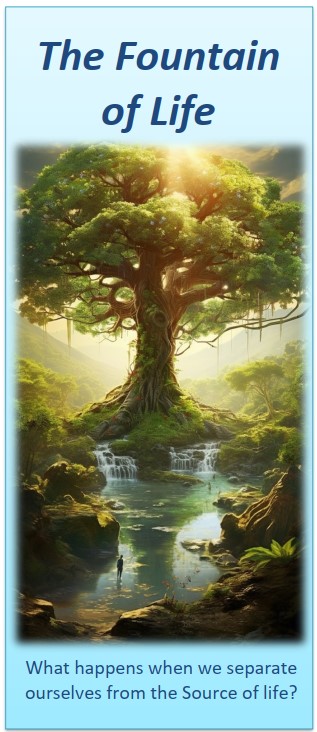Violence Done by Jesus Cleansing the Temple?
The Cleansing of the Temple
by Malcolm Reedy
There are two times that Jesus cleanses the temple, and it is as close as Jesus comes to being indignant. He never showed such emotion against the Romans, and though he spoke hard words to the Pharisees, He never knocked over their tables or chased them away. Why is this? Because this has most directly to deal with how His Father was worshipped, the worship of which He was priest. But was He physically violent against people? Let's look at the two stories:
13 It was nearly time for the Jewish Passover celebration, so Jesus went to Jerusalem. 14 In the Temple area he saw merchants selling cattle, sheep, and doves for sacrifices; he also saw dealers at tables exchanging foreign money. 15 Jesus made a whip from some ropes and chased them all out of the Temple. He drove out the sheep and cattle, scattered the money changers’ coins over the floor, and turned over their tables. 16 Then, going over to the people who sold doves, he told them, “Get these things out of here. Stop turning my Father’s house into a marketplace!”
17 Then his disciples remembered this prophecy from the Scriptures: “Passion for God’s house will consume me.”
John 2:13-17
12 Jesus entered the Temple and began to drive out all the people buying and selling animals for sacrifice. He knocked over the tables of the money changers and the chairs of those selling doves. 13 He said to them, “The Scriptures declare, ‘My Temple will be called a house of prayer,’ but you have turned it into a den of thieves!”[a]
14 The blind and the lame came to him in the Temple, and he healed them. 15 The leading priests and the teachers of religious law saw these wonderful miracles and heard even the children in the Temple shouting, “Praise God for the Son of David.”
Matthew 21:12-15
Jesus cleansing the temple was certainly an exciting/terrifying moment for the individuals who ran from His presence. However, this terror was not from the thought that Jesus was going to physically harm them, but rather a deep conviction of sin combined with a rejection of the only One who could heal their sin.
They were taking advantage of the circumstances by exacting unreasonable amounts of money for sacrificial animals from the common people, who had already made a great sacrifice to sojourn to keep the feast in Jerusalem; while at the same time telling those individuals that their sins could not be forgiven without offering a sacrifice. Their leveraging was not out of a pure or sincere concern for their spiritual condition, but rather a cunning manipulation to make themselves wealthy. This buried the true meaning of the sacrifices, which were to point to the humble Messiah, "the Lamb of God who takes away the sin of the world," and impress upon the mind that "the sacrifices of God are a broken and contrite heart." John 1:29 & Psalm 51:17
All of this made the people feel like the sacrificial system was something to dread as a great, meaningless burden, rather than its true import: a thorough humbling of the heart and cleansing of sin.
While many films depict the Son of God aggressively flipping money tables and driving out the beasts with their owners; this is a product of the inherent violent imaginations of human nature. The Bible allows us to imagine how Jesus used the whip in the first cleansing of the temple in John 2 - was it merely to make a sound so as signal to the sacrificial animals to leave, or was it to whip humans? The Scriptures do not indicate that He inflicted harm on any man or beast, and the turning over the tables in the 2nd cleansing was an action against an inanimate object, which should cause us to remember:
"Diverse weights are an abomination to the LORD, and dishonest scales are not good." Proverbs 20:23
Therefore, what Christ did was a beautiful illustration of true worship and a setting forth of correct priorities. Jesus was as poor as any man has ever been in material goods, and here He exposes the vanity of professed religion in contrast to religion of the heart. He desired the temple to be a safe, sanctified, and reverent atmosphere where worshippers could come to commune with their Heavenly Father, not to be haggled by merchants and distracted by a multitude of animal noise.
"Then He taught, saying to them, "Is it not written, 'My house shall be called a house of prayer for all nations'? But you have made it a 'den of thieves." Mark 11:17
One clear evidence that Jesus did not cleanse the temple in a violent manner is seen in this verse:
"But when the chief priests and scribes saw the wonderful things that He did, and the children crying out in the temple and saying, "Hosanna to the Son of David!" they were indignant" Matthew 21:15
Children are easily frightened by acts of aggression by adult men, and the fact that Jesus was immediately surrounded by children who were chanting a worshipful melody to Him after He completed His work reveals that they felt safe and comfortable in His presence.
In a sanctified imagination, let's visualize the scene in a fresh light, where the poor, disabled, and of course, the children (now free from the harassment and noise of the merchants) come to sit at the feet of Jesus to be healed, refreshed, and encouraged by His word. Even those who sold and were cast out could have found grace and forgiveness in the Messiah, but they were likely too occupied indignantly rounding up their animals and picking up the coins from off the ground.
May we also, as Christ, be consumed with zeal for the honor and protection of God's glory!
For more info on this story, see Kevin Mullins' article: (John 2:13-16) Didn’t Jesus Show Violence and Anger When He Kicked the Moneychangers Out of the Temple?




